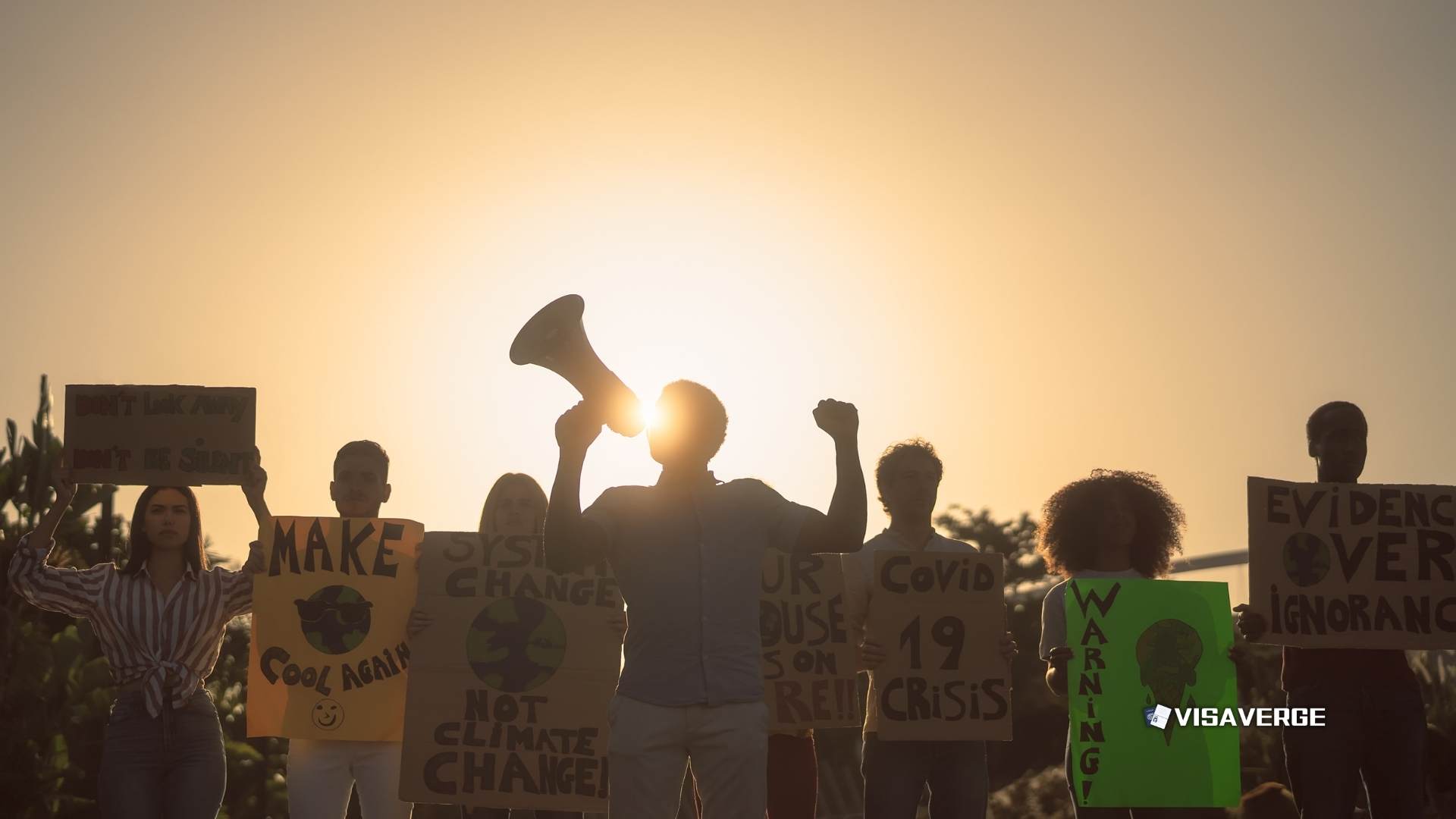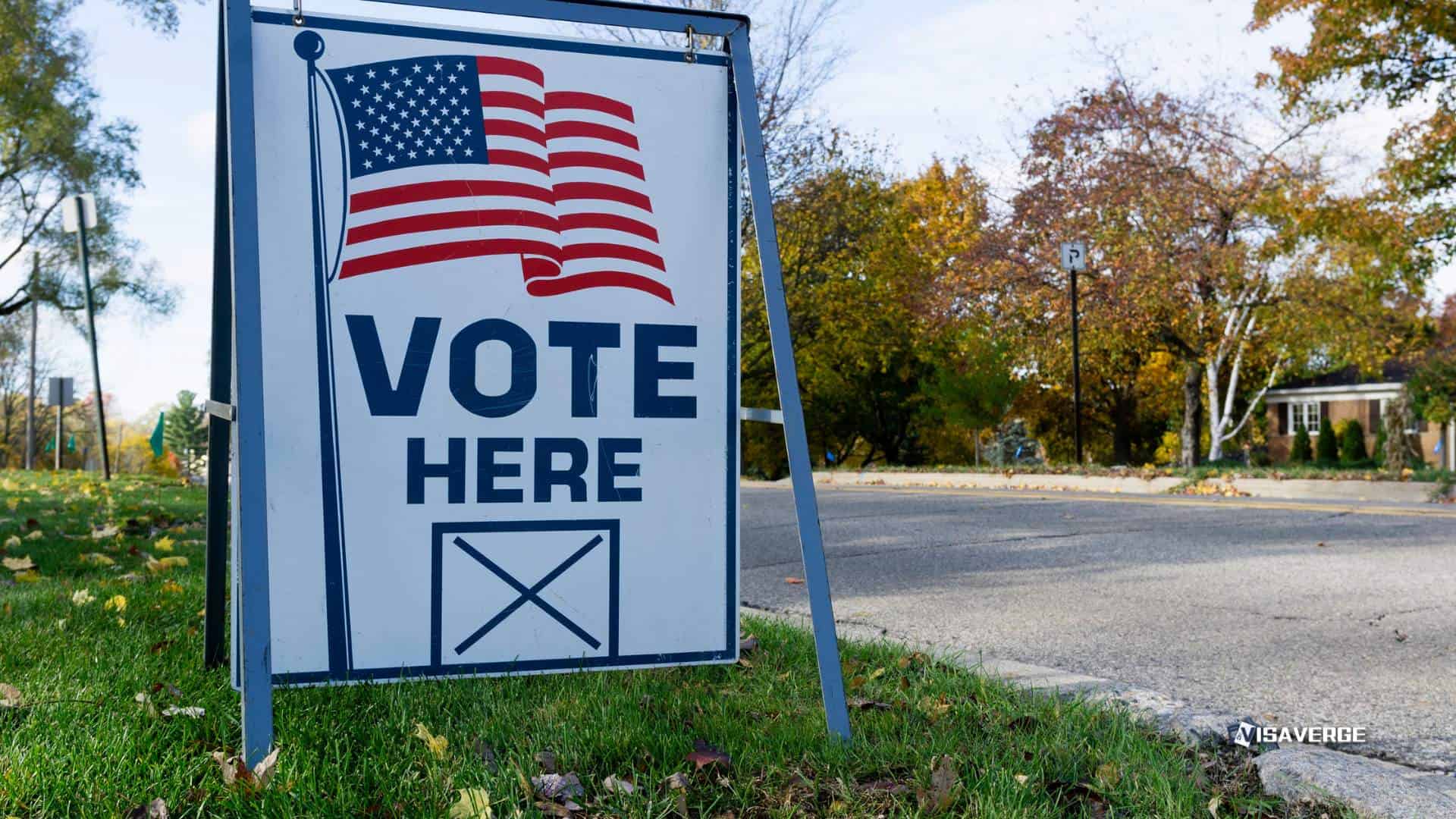(UNITED STATES) President Trump’s administration has ordered an immediate freeze on the processing of about 235,000 Green Cards for refugees who entered the United States 🇺🇸 between January 20, 2021, and February 20, 2025, during President Biden’s term. The move has triggered alarm among aid groups and immigration lawyers.
Under a directive issued by U.S. Citizenship and Immigration Services (USCIS), all pending refugee-based applications for permanent residence will pause while officers carry out a mandatory re-interview and full security review of each case. USCIS will have the authority to deny or even revoke Green Cards that have already been granted.

Key details of the memo and scope
- The internal memo ordering the freeze was signed by Joseph Edlow, Director of USCIS, and dated November 21, 2025.
- It states that only the USCIS director or deputy director may approve exceptions.
- The directive covers:
- All refugees admitted between January 20, 2021, and February 20, 2025.
- Every pending Form I-485 application for permanent residence based on refugee status.
Table: Scope at a glance
| Item | Detail |
|---|---|
| Number of Green Cards affected | ~235,000 |
| Admission window | Jan 20, 2021 – Feb 20, 2025 |
| Memo signed by | Joseph Edlow, Director of USCIS |
| Memo date | November 21, 2025 |
| Forms affected | Pending Form I‑485, Application to Register Permanent Residence or Adjust Status (refugee-based) — see https://www.uscis.gov/i-485 |
What USCIS officers will do
USCIS has instructed officers to:
- Conduct an in-person re-interview of principal refugee applicants.
- Perform a full review of every ground of inadmissibility, even if the issue was previously examined or waived.
- Evaluate whether the applicant still meets the legal definition of a refugee and whether any new security or criminal concerns have emerged.
- Potentially question family members, request additional documents, and reopen cases already granted.
The memo explicitly directs officers to revisit areas including the “persecutor bar” (which blocks Green Cards for anyone found to have taken part in persecution) and security- and terrorism-related grounds.
Appeals, legal process, and practical impacts
- Unlike most Green Card applicants, refugees subject to this freeze do not have a direct appeals process if USCIS denies or revokes their applications after the new review.
- The memo states that people who lose their cases can only challenge the decision in immigration court if the government later tries to deport them.
- Lawyers warn this could leave many families in limbo for years, uncertain about renewing work permits, traveling, or buying homes while they wait to see if removal proceedings begin.
There may be no direct appeals if a refugee-based Green Card is denied or revoked—challenges may only occur later in deportation proceedings, leading to prolonged uncertainty for families.
Practical consequences include:
- Cancellation or postponement of previously scheduled Green Card interviews on the memo’s effective date.
- Anticipated long delays as officers focus on repeated checks rather than processing new cases.
- Families close to approval may now wait months or longer for a fresh re-interview.
- Those already granted Green Cards face the risk that USCIS could try to reopen and revoke status.
Who is affected
- Principal refugees (the main applicants) and many family members admitted as spouses or children are covered.
- USCIS guidance pages on refugee benefits and status have not yet been updated to reflect the new freeze, creating confusion for caseworkers and communities. (See official guidance here: https://www.uscis.gov/humanitarian/refugees-and-asylum/refugees)
USCIS will conduct re-interviews and full inadmissibility reviews; exceptions require approval only from the agency’s director or deputy director, per the memo dated November 21, 2025.
Reactions from advocates, agencies, and officials
- Advocacy organizations describe the order as sweeping and cruel, noting refugees already underwent layers of security checks before arriving.
- Mark Hetfield, president of the Jewish refugee agency HIAS, called the policy “unspeakably cruel,” saying reopening settled cases will “re-traumatize people who have already lost everything.”
- Refugee organizations nationwide called the measure “unprecedented and cruel,” warning it will spread fear among families who escaped war, torture, or religious persecution.
“We are telling people who have done everything right that the government might rip their status away, not because of anything they did, but because politics changed,” one resettlement worker said.
Caseworkers report clients already struggling with trauma may now fear every knock on the door or letter from USCIS.
Political and policy context
- The memo frames the freeze as an “operational necessity” to protect national security and public safety. It criticizes the Biden administration for prioritizing “speed and quantity” over more careful checks when admitting refugees.
- Analysis by VisaVerge.com places this order within a broader Trump-era approach that:
- Sharply cut refugee arrivals.
- Favored certain groups (including white South Africans).
- Lowered the overall refugee ceiling to historic lows.
- Earlier measures included suspending most new refugee admissions and tightening vetting rules. Advocates say this new step goes further by reopening settled Green Cards for people already living in the U.S., rather than only limiting future admissions.
Legal challenges, advice, and next steps for affected people
- Some immigration attorneys are exploring court challenges, arguing that mass reopening of long-settled refugee cases:
- Breaks promises made at admission.
- May violate due process protections.
- But the memo’s structure—pushing disputes into later removal proceedings instead of allowing immediate appeals—could make fast nationwide challenges more difficult.
Lawyers are advising clients to:
- Not panic, but prepare by gathering records, including:
- Proof of work history
- Tax filings
- Evidence of community ties
- Be ready to present these documents if called for a re-interview.
If your Form I-485 is pending due to refugee status, stay updated on USCIS guidance and case status, as interviews or interviews schedules may be postponed or canceled under the new directive.
Broader concerns and reactions
Supporters within the Trump administration portray the freeze as a corrective measure to rushed vetting under the previous administration, arguing a review is necessary before refugees receive the permanent protection Green Cards provide.
Critics counter that:
- The United States already operates one of the world’s longest and most intensive refugee screening processes, which can take years before a person even boards a plane.
- Treating tens of thousands of families as potential threats after they have begun to rebuild their lives sends a chilling message and risks pushing long-time refugees back into the shadows.
- For many refugees, trust in the system is now shattered.
What to watch
- How USCIS implements the re-interviews and security reviews in practice.
- Whether exceptions will be granted and on what basis.
- The pace and outcome of any legal challenges.
- Updates to USCIS public guidance pages and communications to affected communities.
USCIS issued a directive freezing processing of roughly 235,000 refugee-based Green Cards for people admitted between Jan. 20, 2021 and Feb. 20, 2025. The memo mandates in-person re-interviews and comprehensive security reviews of pending Form I-485 cases, with potential denials or revocations of granted status. Signed Nov. 21, 2025 by Director Joseph Edlow, exceptions require director-level approval. Advocates warn of prolonged uncertainty, limited immediate appeals, and significant human and legal consequences.








